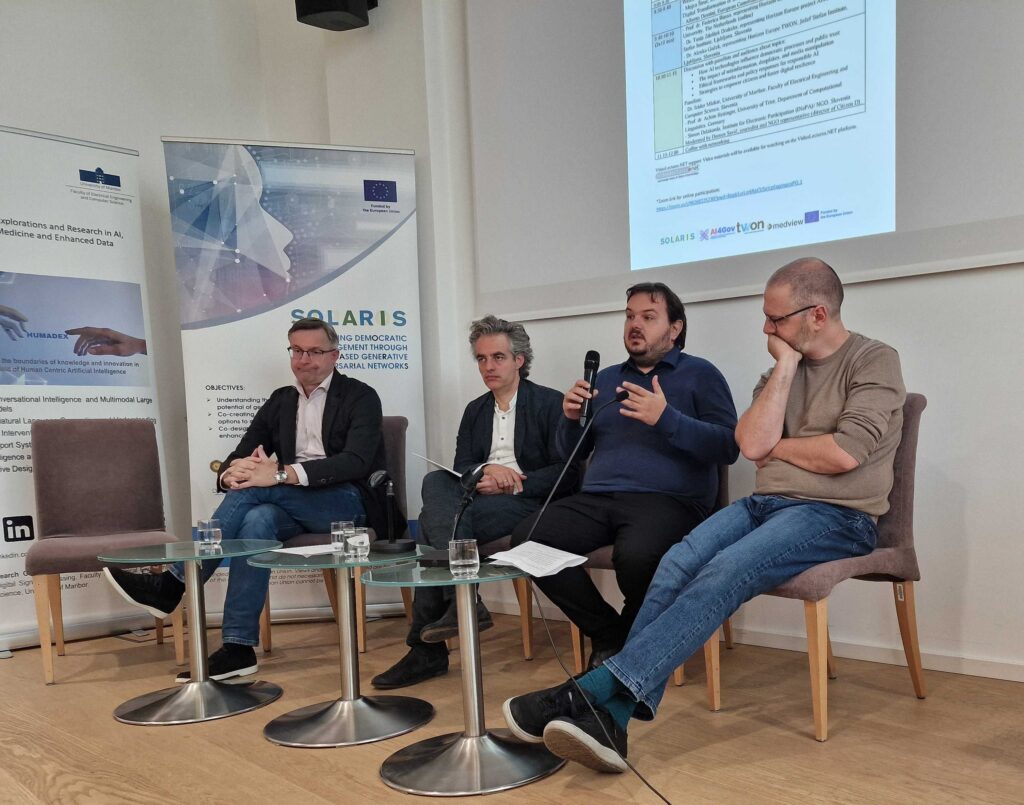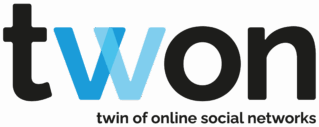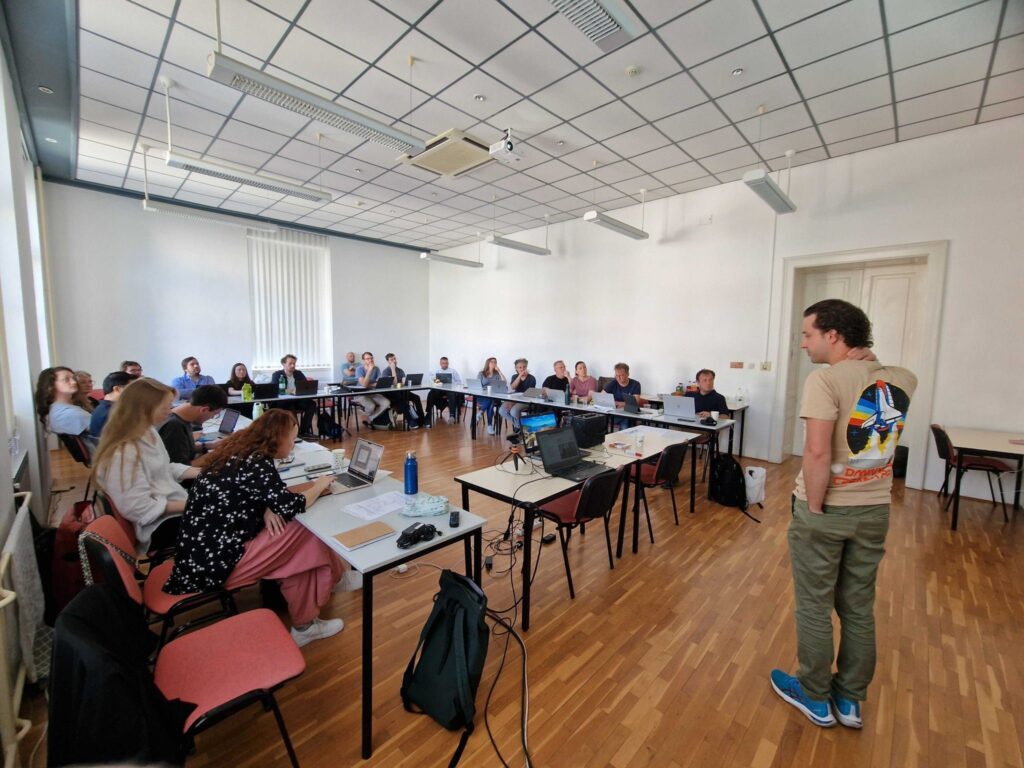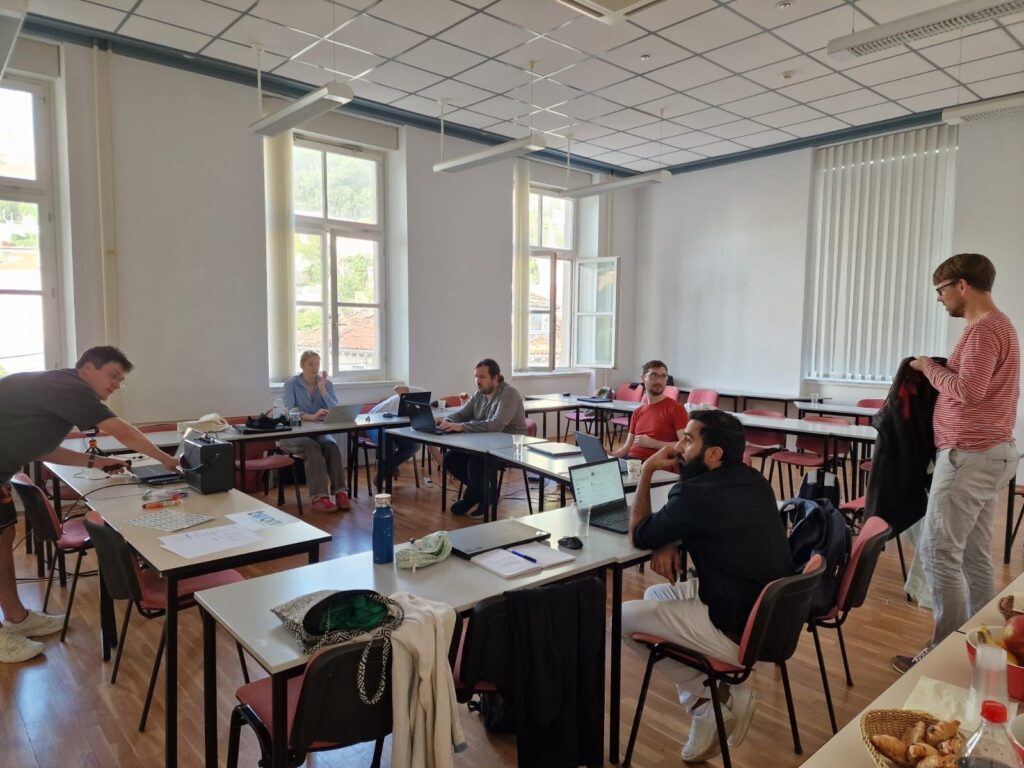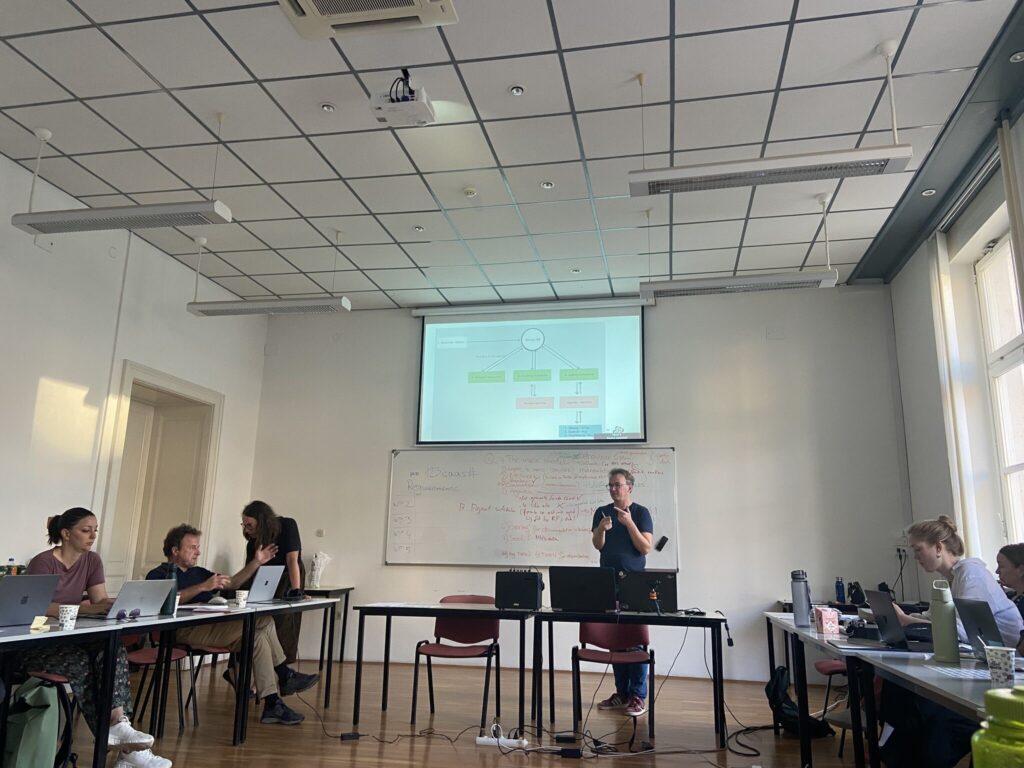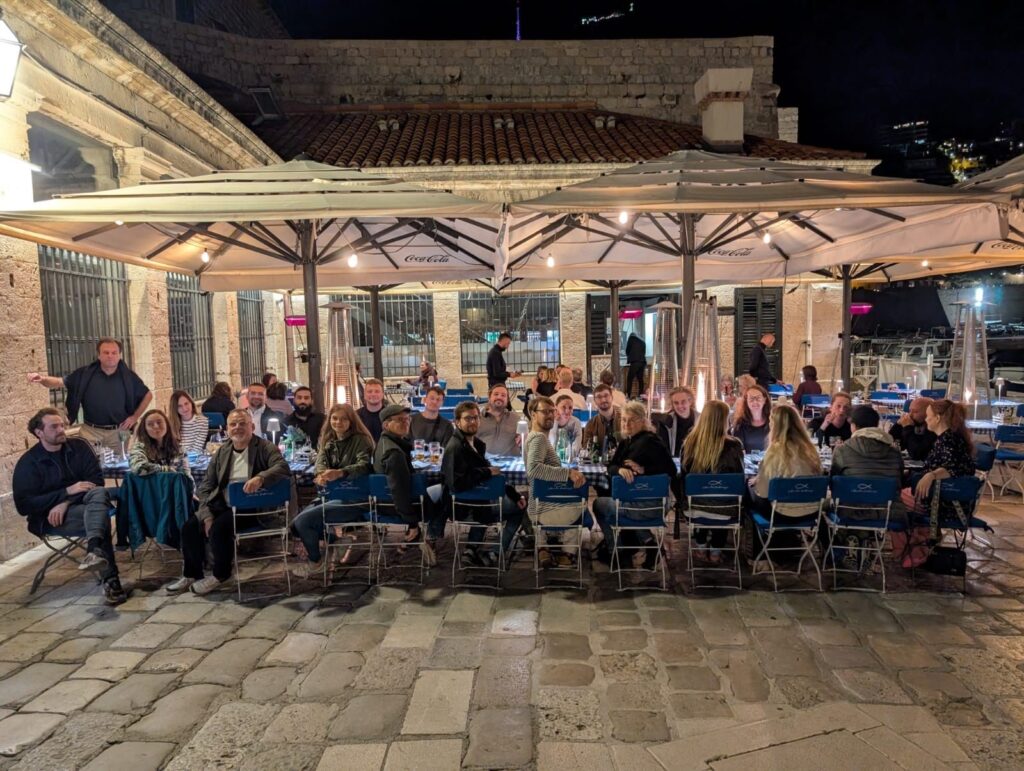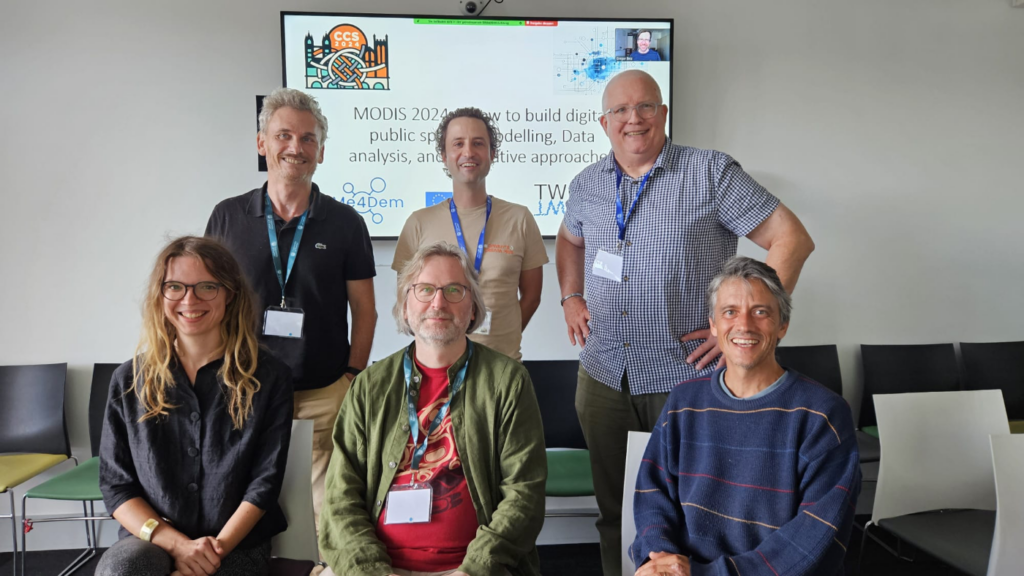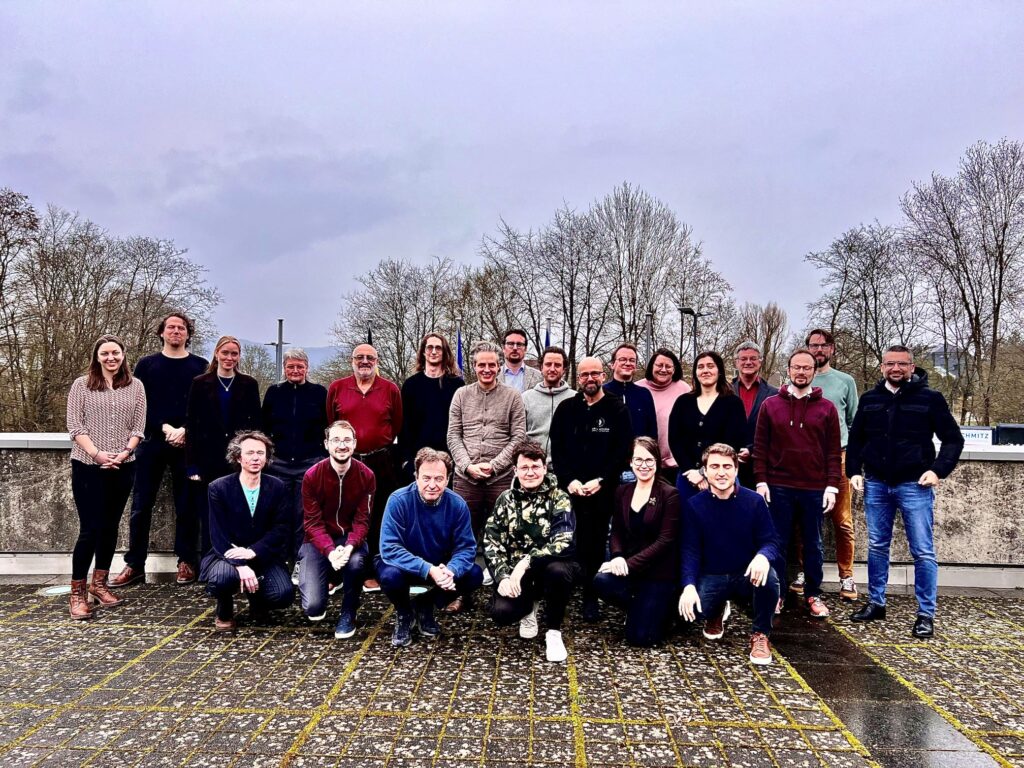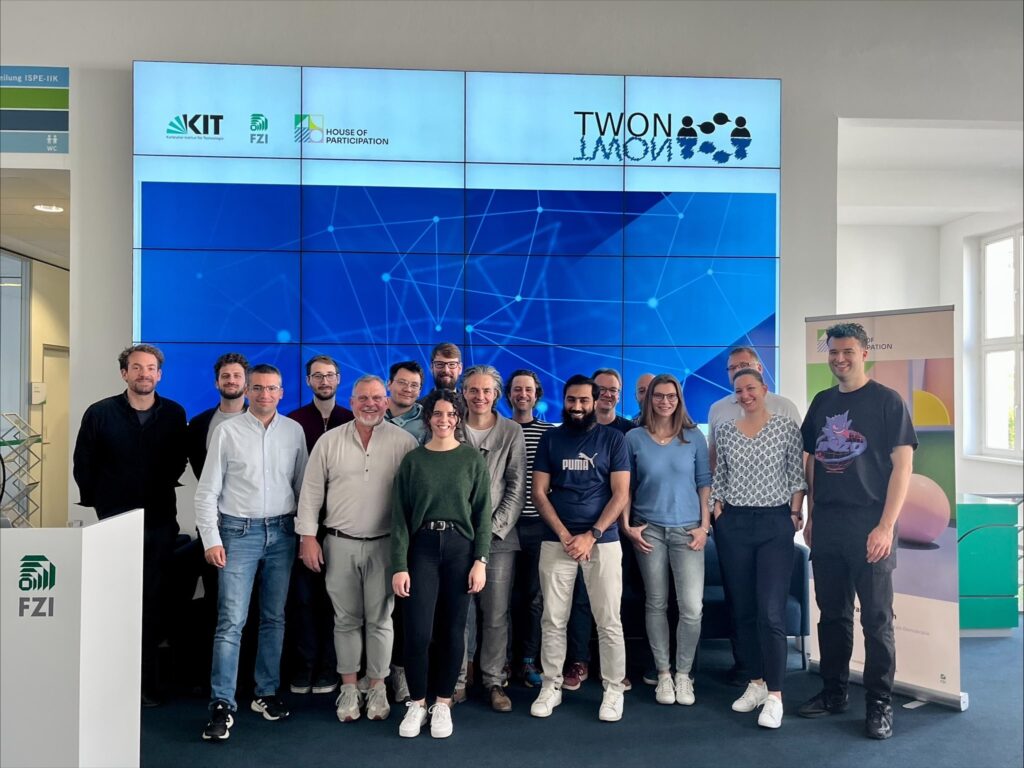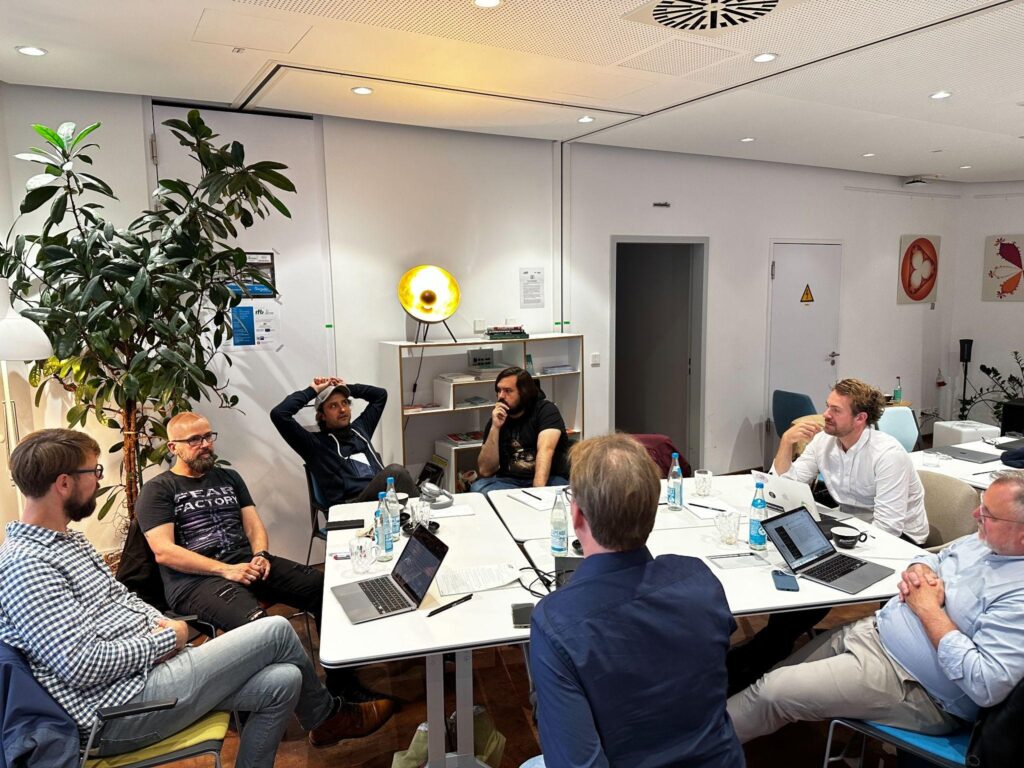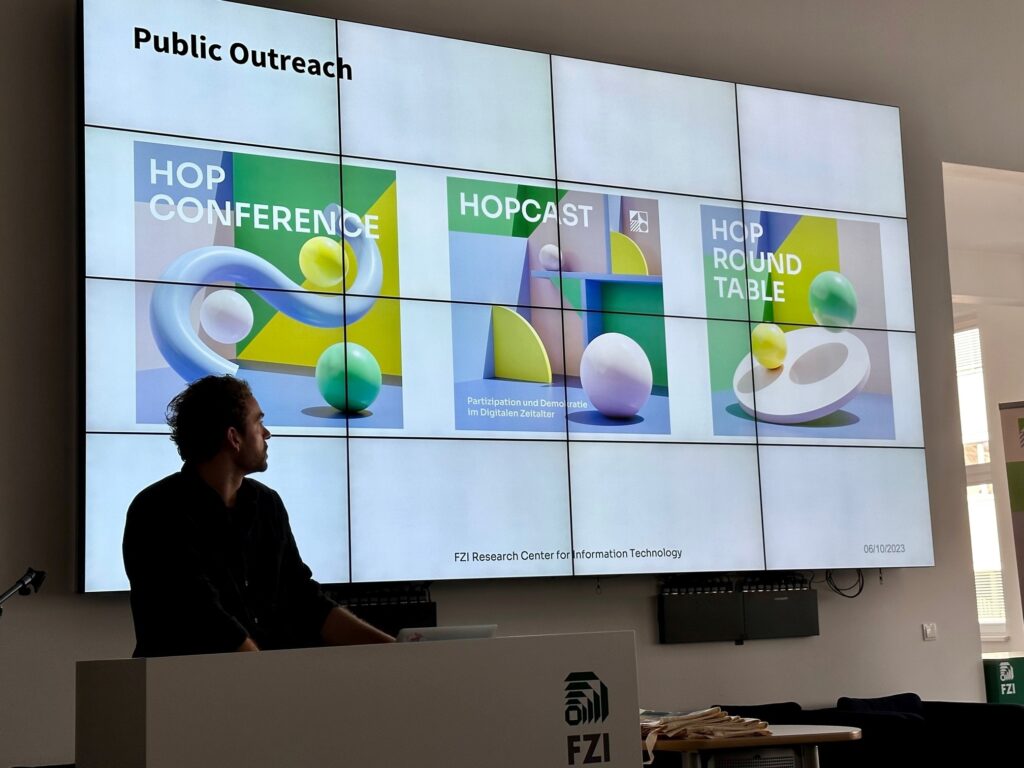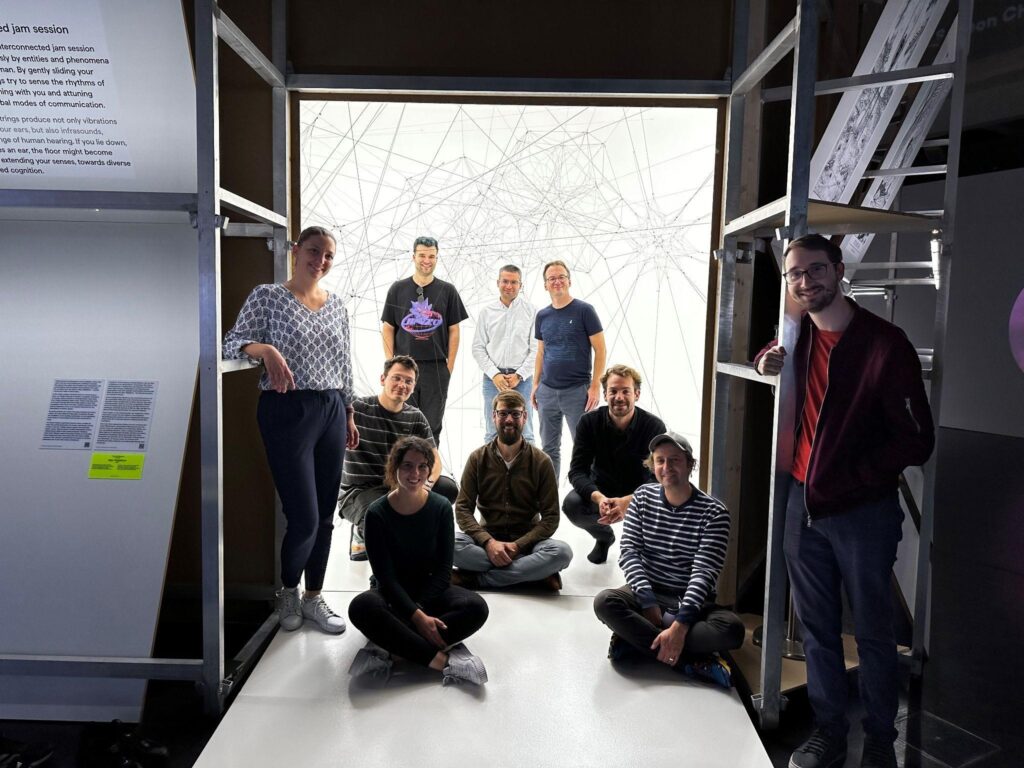Rethinking AI for Democratic Societies – Joint Event in Ljubljana, October 14
On October 14, partners from the projects AI4Gov, SOLARIS, and TWON gathered in Ljubljana to explore how artificial intelligence can support democracy, transparency, and citizen participation.
The event titled AI, Democracy and the Public Interest: Building Resilient Digital Futures brought together experts from research, policy, civil society, and industry. The program included project presentations, followed by a panel discussion featuring contributors such as Federica Russo and Tanja Zdolsek Draksler.
Hosted at Hotel City Ljubljana, the event “AI, Democracy, and the Public Interest: Building Resilient Digital Futures” brought together experts from research, policy, civil society, and industry. The program included project presentations, followed by a panel discussion featuring contributors such as Federica Russo and Tanja Zdolšek Draksler.
Our researcher Alenka Guček introduced TWON in an expert talk, while Achim Rettinger participated as a panelist in a discussion on the influence of AI technologies on democratic processes and public trust.
The event concluded with networking and informal exchanges on how to build ethical, democratic, and human-centered digital futures.
Discussions throughout the day highlighted the need for greater transparency and accountability in AI systems, stronger cooperation across sectors, and increased public understanding of AI’s societal impact. The full recordings are now available online.
As TWON, we emphasize the importance of strengthening connections between European research and policy efforts on AI and democracy. Our sincere thanks go to the Solaris and AI4Gov teams for making this event possible.
